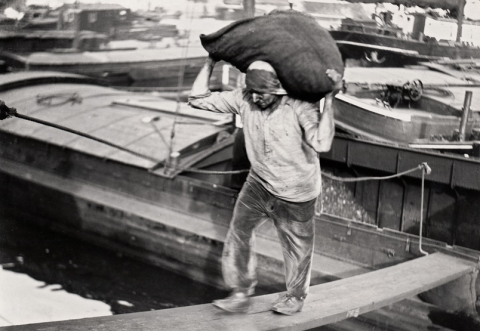
Mission
In the last twenty years Maritime History has experienced an innovative development, but, as a matter of fact, work and workers had been usually neglected. Few areas (i.e. docks and dockworkers) had received full attention from scholars. In addition, although a number of scholars and specialist do research on this field, there is a lack of coordination between them and, moreover, between researchers in each area. Thus, merchant shipping or fisheries are studied commonly as a separate body disconnected from the rest of the maritime sectors. The ELHN Working Group on Maritime Labour History aims to look ashore and offshore with a broad view.
Scope
Maritime economies are essentially international, and so are some of the labour characteristics. Maritime industries had, in turn, a strategic role in the national economies and in national defence as well through different instruments of registering, conscription and enlistment. Thus, maritime labour has developed singular features over the ages. Maritime labour history should be studied and analysed in order to be incorporated in the whole of labour history. Maritime industries can be divided in four broad areas, linked between them and whose frontiers are sometimes unclear and should be viewed as a whole:
- Merchant marine (coastal and ocean going navigation, shipping industry, etc.)
- Fishing industries (coastal and deep sea fishing, tuna traps, whaling, canning industries, etc.)
- Shipbuilding and ship repair industries
- Cargo loading and unloading
The history of maritime labour includes a number of topics that can be discussed: labour relations, contract and payment methods, labour conditions, professional categories, skills, qualification and dequalification processes, health and safety, welfare, intervention of the State, hierarchy and discipline, guilds and trade unions, permeability between sectors, identities, etc. From a European approach, comparative studies are needed and should be encouraged. The working group wants to promote cross-period research in this field. It also intends to inform the research community about ongoing research, resources, workshops and conferences. Furthermore, it aims to exchange information and knowledge between scholars devoted to this area. Finally, it will promote joint projects, seminars and other form of meetings.
The working group's network includes scholars (professors, post-doc and PhD researchers, post-graduates or students), but will also seek to connect young students and researchers at the beginning of their academic career. Everybody is welcome.
The Working Group on Maritime Labour History was launched at Turin in December 2015, during the first ELHN Conference, and participated in the second ELHN Conference at Paris on November 2017. From time to time we edit a Newsletter with interesting information to share, see files attached.
Activities
The working group aims to map the field by inviting scholars to share information on recent research on maritime labour history. Calls for papers, news about forthcoming events and publications are circulated through a periodical Newsletter. Proposals for publications will be welcomed as well.
Contact
Dr. Enric García Domingo, member of the research group TIG Treball, Institucions i Génere (Work, Institutions and Gender) of the Universitat de Barcelona.
Prof. Jordi Ibarz, professor of Modern History at the Department of History and Archaeology of the University of Barcelona and member of the research group TIG Treball, Institucions i Génere (Work, Institutions and Gender) of the Universitat de Barcelona.
To contact the working group please use the questionnaire attached below.
External links
[last updated 1 September 2021]
